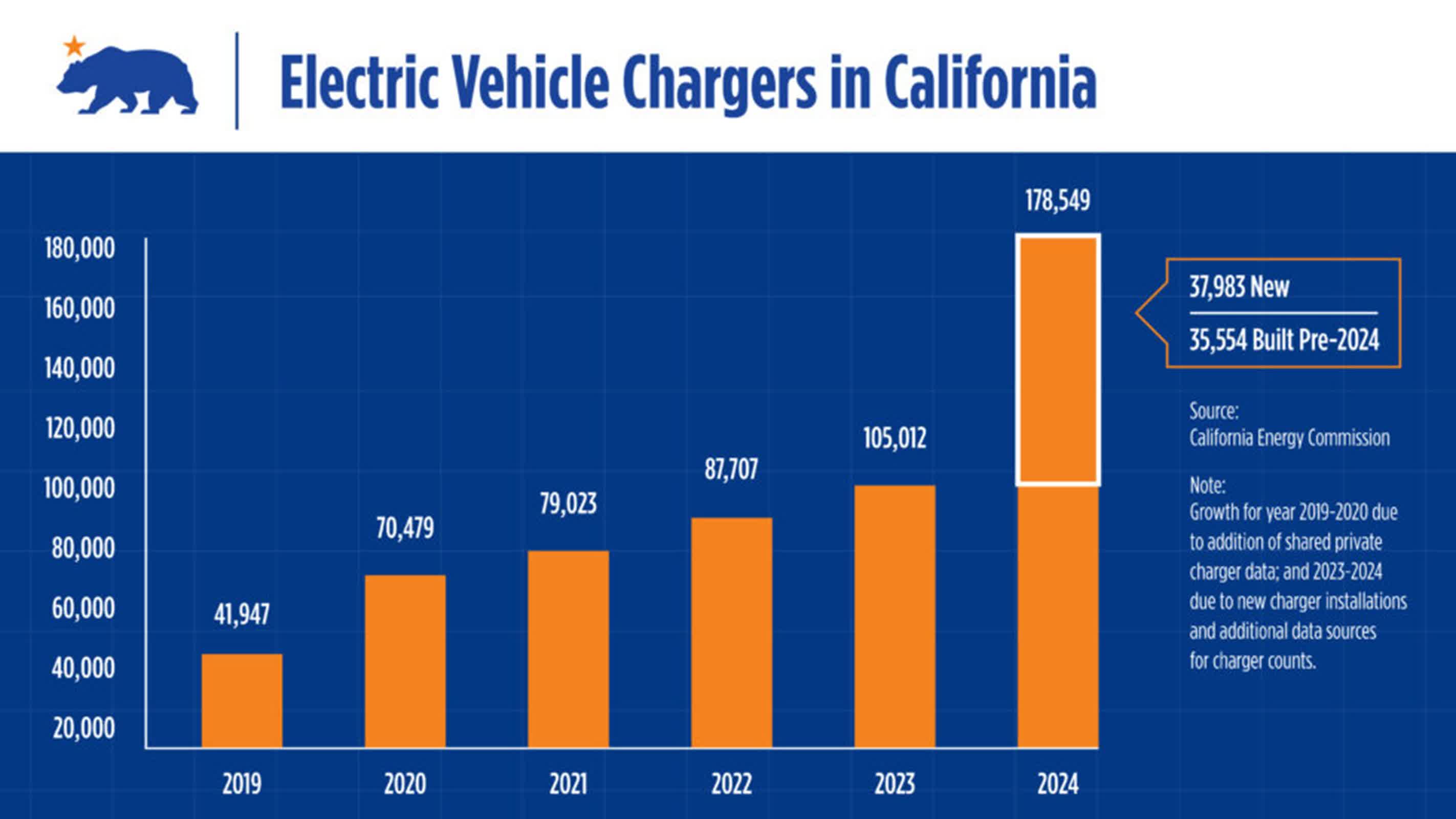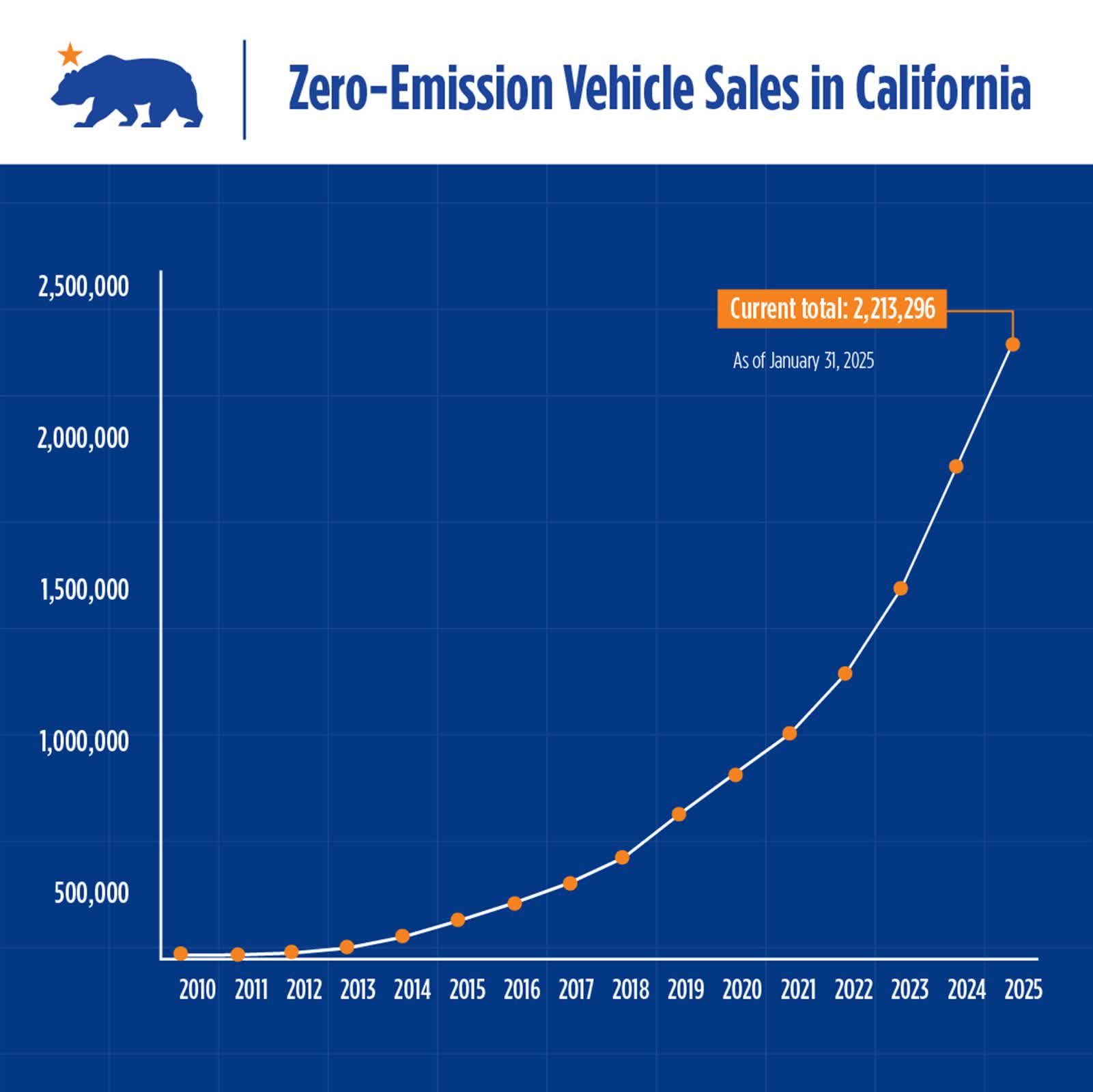In brief: California is leading the nation's shift to zero-emission vehicles (ZEV), establishing key benchmarks in its efforts to advance clean transportation and infrastructure. With just 11.3 percent of the U.S. population, the state accounts for 30 percent of all new ZEV sales nationwide, according to the California Air Resources Board. It also notes that for two consecutive years, one in four Californians has opted for a zero-emission vehicle over traditional gas-powered models.

The state has also made significant strides in building an expansive electric vehicle charging network. Governor Gavin Newsom recently announced that California now boasts 178,549 public and shared private EV chargers, surpassing the state's approximately 120,000 gasoline nozzles by 48 percent.
Of these chargers, over 162,000 are Level 2 chargers designed for longer charging sessions, while nearly 17,000 are fast chargers capable of quickly replenishing battery levels. Beyond the public infrastructure, the California Energy Commission (CEC) estimates that more than 700,000 Level 2 chargers have been installed in single-family homes across the state.

State agencies have invested heavily in infrastructure improvements, allocating $1.4 billion to expand the country's most extensive EV charging and hydrogen fueling network. This funding supports initiatives like the Fast Charge California Project under CALeVIP, which aims to install fast-charging stations at businesses and public locations statewide. Additionally, thousands of dollars in grants and rebates are available to assist low-income residents in adopting EV technology.
The CEC has improved its tracking methods to ensure chargers are accurately counted and deployed where they are most needed. In 2024 alone, nearly 38,000 new chargers were installed, while an additional 35,554 existing chargers were identified through updated data sources.
Efforts to streamline charger deployment are also underway. State agencies are working to cut red tape and expedite permitting processes for EV chargers while establishing reliability standards and planning for increased grid demand. Attorney General Rob Bonta recently issued a legal alert reminding local governments of their obligations under state law to facilitate charger installations efficiently.

The state's focus on clean transportation is evident in its dominance of the zero-emission vehicle market. In the fourth quarter of 2024 alone, Californians purchased over 108,000 ZEVs, accounting for more than a quarter of all new vehicle sales statewide – a slight increase from the previous year. By the end of 2024, California had surpassed two million ZEVs sold since adoption began.